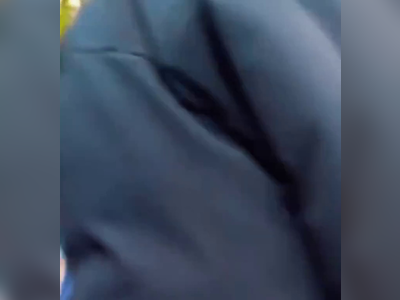
University of Pennsylvania Says No Deal with White House on Funding Compact
Penn reports no further talks with Trump administration after rejecting proposed higher-education agreement
The University of Pennsylvania has confirmed that it has not entered into any negotiations with the Donald Trump administration since rejecting a federally-initiated funding compact nearly a month ago.
According to sources familiar with the matter, Penn communicated its decision in mid-October and has received no counter-offer from the White House or the U.S. Department of Education since.
The compact in question, formally titled the “Compact for Academic Excellence in Higher Education”, was sent to nine prominent American universities on October 1, 2025, including Penn. The funding deal offered preferential access to federal student loans, grants, contracts, research support, international student visas and tax benefits, contingent on institutions accepting policies such as a five-year tuition freeze, a cap on international student enrolment at 15 percent, and measures intended to ensure the promotion of conservative viewpoints among faculty and students.
Penn President J. Larry Jameson notified the Department of Education on October 16 that the university “respectfully declines” to sign the compact.
In his communication, he highlighted areas of alignment but also “substantive concerns” and input from faculty, alumni, trustees and staff.
In a message to the university community, he emphasised the institution’s commitment to merit-based achievement and accountability, stating that “shared goals and investment in talent and ideas will turn possibility into progress.”
Despite the looming November 21 deadline set by the White House for institutions to indicate their intent to sign, sources confirm Penn has had no follow-up conversation or alternative proposal from the federal government.
Some in the university leadership told The Daily Pennsylvanian that the White House has not offered amended terms or engaged further since the university’s rejection.
The absence of dialogue marks a significant moment in federal-university relations.
While administration officials view the compact as an opportunity to reward reform-minded institutions, university leaders and academic stakeholders across the country view it as imposing excessive federal influence on institutional governance, academic freedom and admissions policy.
Penn’s decision aligns it with several other elite institutions that have rejected the offer, signalling that few, if any, are willing to accept the terms as currently constituted.
As the November 21 deadline approaches, attention now turns to whether the White House will adjust its strategy, engage more institutions directly or pursue alternative rosters of signatories.
For Penn, the key question remains whether the university will remain in its current posture or resume negotiations once new terms are tabled.
According to sources familiar with the matter, Penn communicated its decision in mid-October and has received no counter-offer from the White House or the U.S. Department of Education since.
The compact in question, formally titled the “Compact for Academic Excellence in Higher Education”, was sent to nine prominent American universities on October 1, 2025, including Penn. The funding deal offered preferential access to federal student loans, grants, contracts, research support, international student visas and tax benefits, contingent on institutions accepting policies such as a five-year tuition freeze, a cap on international student enrolment at 15 percent, and measures intended to ensure the promotion of conservative viewpoints among faculty and students.
Penn President J. Larry Jameson notified the Department of Education on October 16 that the university “respectfully declines” to sign the compact.
In his communication, he highlighted areas of alignment but also “substantive concerns” and input from faculty, alumni, trustees and staff.
In a message to the university community, he emphasised the institution’s commitment to merit-based achievement and accountability, stating that “shared goals and investment in talent and ideas will turn possibility into progress.”
Despite the looming November 21 deadline set by the White House for institutions to indicate their intent to sign, sources confirm Penn has had no follow-up conversation or alternative proposal from the federal government.
Some in the university leadership told The Daily Pennsylvanian that the White House has not offered amended terms or engaged further since the university’s rejection.
The absence of dialogue marks a significant moment in federal-university relations.
While administration officials view the compact as an opportunity to reward reform-minded institutions, university leaders and academic stakeholders across the country view it as imposing excessive federal influence on institutional governance, academic freedom and admissions policy.
Penn’s decision aligns it with several other elite institutions that have rejected the offer, signalling that few, if any, are willing to accept the terms as currently constituted.
As the November 21 deadline approaches, attention now turns to whether the White House will adjust its strategy, engage more institutions directly or pursue alternative rosters of signatories.
For Penn, the key question remains whether the university will remain in its current posture or resume negotiations once new terms are tabled.












